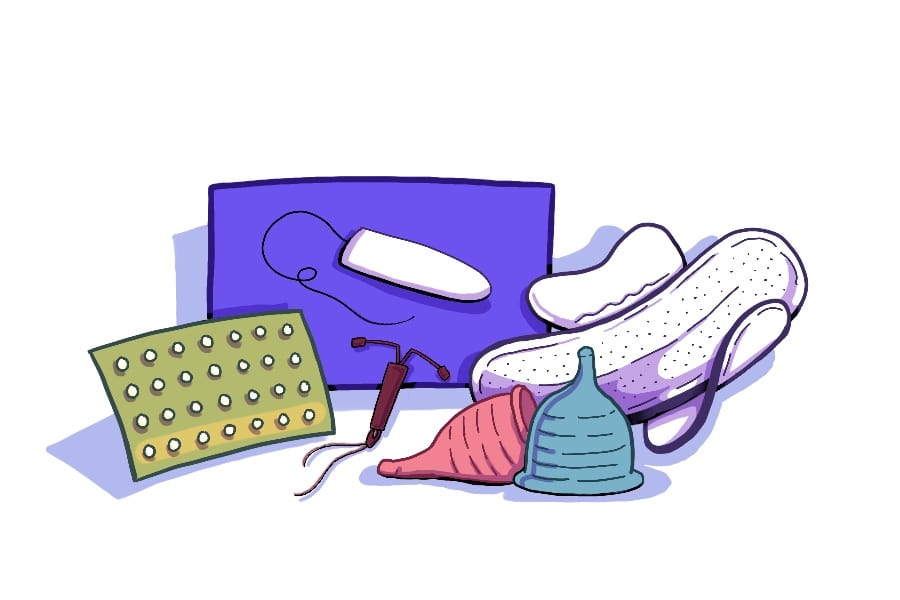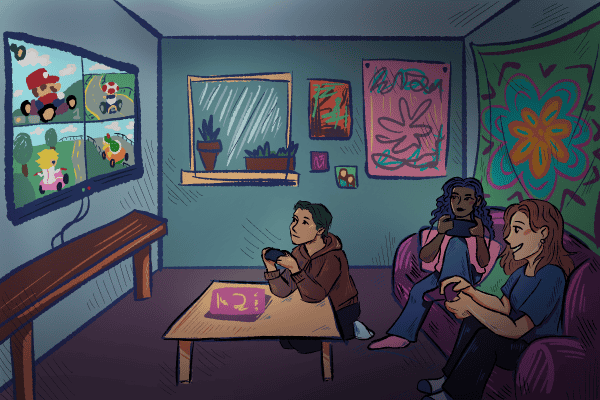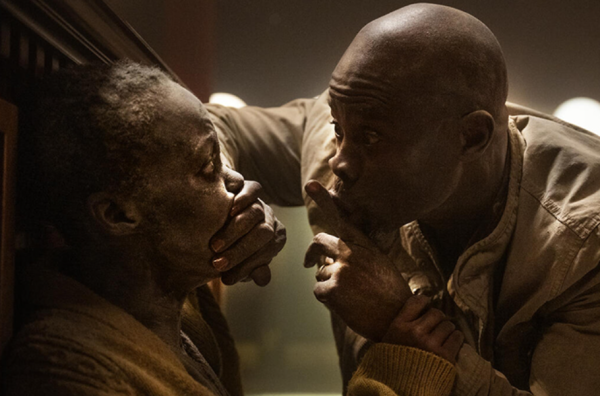Stigma causes issues for women’s health
March 2, 2022
Many young girls are taught to keep their periods a secret, hide their tampons when they go to the bathroom, or use code words to discuss issues regarding their menstruation to avoid scrutiny or disapproval. This aspect of women’s health is often left behind closed doors.
But, menstruation, sexual health and reproductive systems are an important part of women’s health, and a lack of open conversations embeds a stigma in the discussion.
According to the New York Post, 58% of women feel embarrassed when they are on their periods, and 42% of women have experienced period-shaming.
The more open society is about topics like menstruation cycles, the easier it is for people who deal with them to feel comfortable getting help.
“I feel like a lot of girls are getting hurt because of the stigma that surrounds women’s health,” said Ally Ferrara, a sophomore majoring in public health. “Without the right information, girls might do the wrong thing, and that can be dangerous. If they don’t know these important things, they won’t be able to get the help that they need when they need it.”
The stigma around these health topics creates a sense of embarrassment for women when it comes to addressing their health issues. The more women suppress the issues, the worse they can get.
“We have been almost trained to not talk about period or sexual health, and it is normal,” said Kaylin Robinson, a sophomore majoring in history and public relations on the pre-med track. “It is so important that we are educated on these things and that we talk about them openly so nobody feels ashamed to talk about these natural things.”
Education is key to breaking the stigma around these topics. The more comfortable people become about educating youth and teens about their bodies, the better young girls can identify health issues they are having.
Sexually transmitted diseases, breast cancer, cervical cancer, heart disease, menopause and other common health issues for women often go untreated. Learning how to check for breast cancer, knowing the signs of STDs and understanding menstrual cycles are all key when it comes to diagnosing these health issues.
While there is some education in schools, there is still a lot missing. Health classes do not always cover all of these important topics when it comes to understanding women’s anatomy.
A report by Thinx in 2020 said 76% of students surveyed believed they were taught more about the biology of a frog than the biology of the female body in school.
“There is a lot of stigma around women’s health and lack of education around periods and sexual health,” said Priya Nangia, a junior majoring in chemistry. “There is so much stigma around talking about those things with young girls which definitely needs to be rectified.”
Discrimination in women’s health care creates obstacles on top of health issues. Discrimination stemming from gender identity or race and ethnicity can impact health care services and resources women are given.
Pain is often handled differently in women of color, which can lead to life-threatening situations.
According to the Centers for Disease and Control and Prevention, Black women experience maternal mortality rates three times higher than their white counterparts. Due to this, there has been a push for more accountability with obstetricians, and in other medical fields, to check racial biases.
Mistreatment of women, especially women of color and Black women, can make women weary of seeking treatment, which can worsen the issues they may be having.
Misdiagnosis creates issues for women when it comes to taking care of themselves and seeking treatment.
A 2021 article by MedMalFirm.com, said there is an epidemic of misdiagnosis among women because doctors view women as too emotional or as medical mysteries.
“It really frustrates me that there are so many problems in the women’s health care system,” said Elle Standish, a freshman majoring in criminology and criminal justice. “There are a huge number of OB/GYNs that overprescribe the pill. They are treating symptoms and not issues that are affecting women. It is like they are throwing darts at a wall and hoping that something sticks.”
Pregnancy is another key element of women’s health that can be a struggle for women to understand and process. All aspects of pregnancy, from ultrasounds and complications to delivery, require health care and assistance.
Choices Pregnancy Clinic is a local nonprofit pregnancy clinic that offers free resources to the public.
“We are like a stepping stone for women that need assistance when it comes to pregnancy,” said Brook Morrow, the clinic’s nurse manager. “We offer free ultrasounds, free pregnancy tests and free pregnancy and parent education classes where both mothers and fathers can earn money to use on baby supplies just for taking these classes.”
Choices Pregnancy Clinic also offers information about abortion, adoption and sexually transmitted diseases at no cost.
“We have also resourced out to a number of different groups or organizations when it comes to other aspects of pregnancy that can be challenging, including pregnancy loss and post-abortion counseling,” Morrow said. “Having someone you can talk to openly about anything involving pregnancy is extremely important.”
Pregnancy can be hard to deal with and understand at first, especially if it is unplanned. Morrow pointed out that college is already difficult and finding out you are pregnant can cause you to go into crisis or panic mode.
According to the CDC, unintended pregnancy rates in 2011 were highest among women between the ages of 18 and 24, mainly college-age women.
“We want to be there just to let a woman ever sit and talk. Sometimes that is all they need. Sometimes all women need is for someone to listen to them without judgment, because they may not have that somewhere else, so we are here to support,” Morrow said.
Resources like the ones at Choices Pregnancy Clinic are also offered by similar organizations and are often overlooked because people do not know they are available.
“These resources are here, and we want to be able to give them to those that need them. A lot of people use the emergency room as a way to go get a pregnancy test, which is good, but they won’t be getting all the resources that we offer here,” Morrow said.
Physical health can directly correlate with mental health, which suffers greatly when women are expected to be able to control their emotions and carry on, especially for mothers.
“I think we shouldn’t make being a woman one more thing to worry about. Women statistically are more likely to be depressed, which is incredibly sad because mental health is so important on top of the other aspects of being a woman,” Standish said.
There have been discussions among businesses and school boards lately about whether women should be allowed leave when necessary for their menstrual cycle, which can include severe pain and discomfort.
“I think personally women should be allowed time off of school and work for their periods. I think people that don’t think that are almost saying your pain really isn’t that bad, which really can invalidate people that are in severe pain,” Standish said. “Contraceptives can also lessen symptoms for some but can also really impact women’s mental health.”
Stigmas around women’s health will be around until education and openness and the things that impact women are normalized. This stigma and misogyny are rooted in health care practices and the lack of research done on women’s health issues.
Focusing on wellness includes seeking help when necessary. The UA Student Health Center has medical professionals who focus on a plethora of different needs, including women’s health.
Peggy Fogg, a CRNP and women’s health provider at the Student Health Center, said period pain is an issue a lot of women come in about.
“Often, I discuss options to improve their menstrual cycle such as birth control pills, the contraceptive patch or vaginal ring, the Depo-Provera shot, an IUD, or the Nexplanon arm implant,” Fogg said. “This is a conversation to discuss if one of these options is the right fit for the patient.”
There is also a newfound autonomy for women in college. Problems that may have been brushed under the rug while growing up can finally be addressed in a more private matter.
“Once at college, women are busy and want a solution. They are able to address their health care needs themselves and decide this is the time to meet with a health care provider and discuss their options,” Fogg said.
This story was published in the Health Edition. View the complete issue here.
Questions? Email the culture desk at [email protected].











